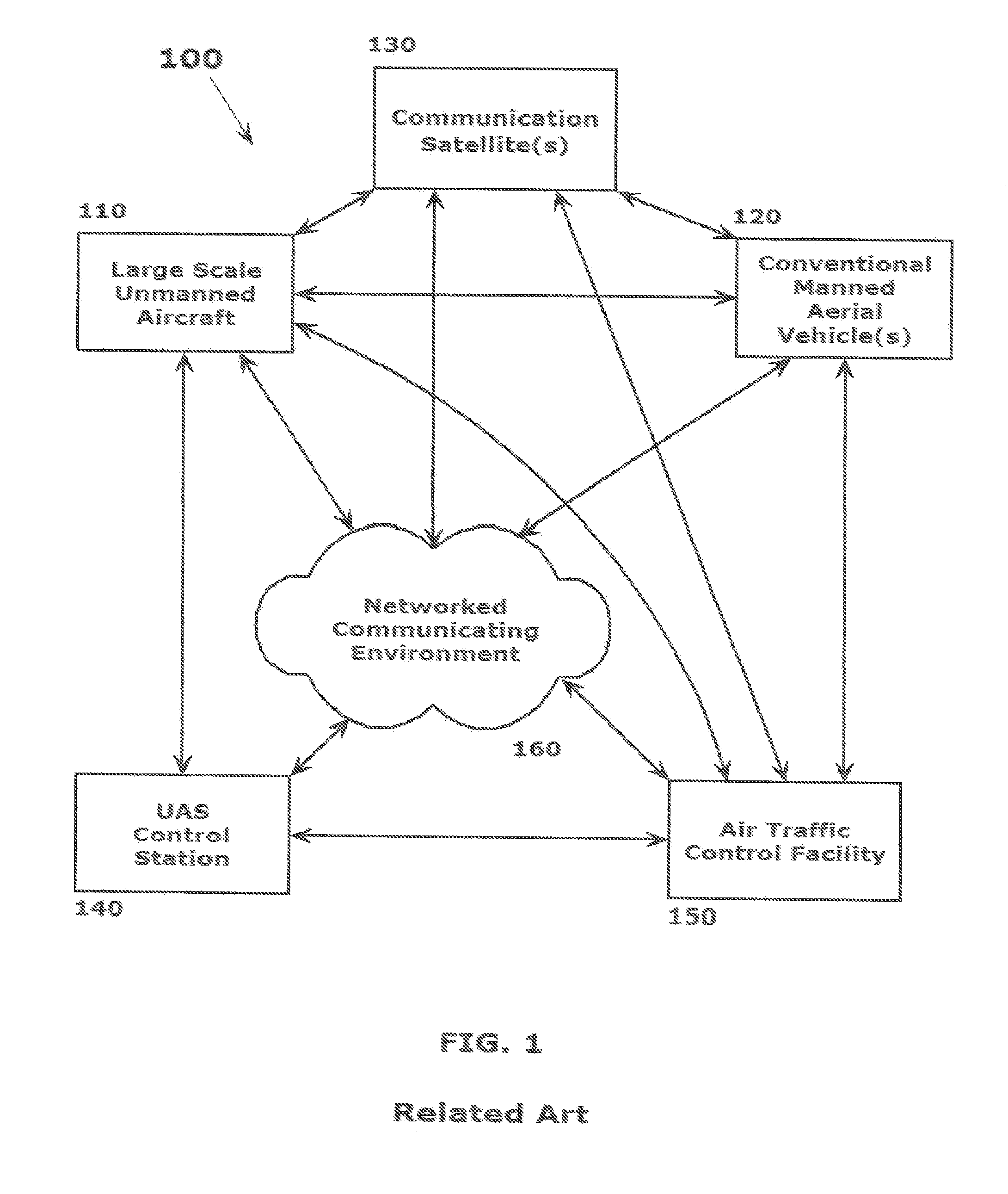SYSTEMS AND METHODS FOR SMALL UNMANNED AIRCRAFT SYSTEMS (sUAS) TACTICAL TRACKING AND MISSION DATA ACQUISITION
a technology for unmanned aircraft and mission data, applied in the direction of aircraft traffic control, navigation instruments, instruments, etc., can solve the problems of large limitation of payload size, weight and power (swap), limited capabilities of early uas, and significant limitation of payload constraints, so as to reduce risk
- Summary
- Abstract
- Description
- Claims
- Application Information
AI Technical Summary
Benefits of technology
Problems solved by technology
Method used
Image
Examples
exemplary embodiment 100
[0045]FIG. 1 illustrates an exemplary embodiment 100 of a network environment in which a large scale UAS may be operated for deconfliction with other conventional aerial traffic. For context, the depiction represented in FIG. 1 may be considered generally applicable to the current implementation of a command, control and communication scheme for integrating “large” UAS operation for UAS platforms greater than 55 pounds in a current or next generation architecture that relies heavily on UAS based communications equipment relaying location information directly to the ground based FAA infrastructure. For example, the FAA has proposed that ADS-B will likely be a mandatory equipment requirement. More broadly, the FAA has described how large scale UAS platforms may be integrated into the NAS and the regulations regarding communications. These schemes apply technology that relies heavily on conventional aircraft avionic technology that is limitedly adapted for use in a larger UAS, but that...
exemplary embodiment 200
[0048]FIG. 2 illustrates an exemplary embodiment 200 of an overview of an sUAS command and control network environment in which remote monitoring for mission tracking and mission data acquisition, and real-time data communication and messaging, may be implemented according to this disclosure. The known solutions that provide robust schemes for integration of large scale unmanned aircraft are strictly limited in the context of any applicability to sUAS implementation. The operational concepts applicable to the system depicted in FIG. 1 overlook, and otherwise do not address any notions regarding sUAS and make no specific recommendations for like strategic integration of sUAS platforms and operations in the NAS. The disclosed scheme, as broadly depicted in FIG. 2 addresses this current shortfall.
[0049]As shown in FIG. 2, an exemplary command, control and communication structure is proposed that accounts for the configuration of sUAS platforms and concepts regarding their intended empl...
PUM
 Login to View More
Login to View More Abstract
Description
Claims
Application Information
 Login to View More
Login to View More - R&D
- Intellectual Property
- Life Sciences
- Materials
- Tech Scout
- Unparalleled Data Quality
- Higher Quality Content
- 60% Fewer Hallucinations
Browse by: Latest US Patents, China's latest patents, Technical Efficacy Thesaurus, Application Domain, Technology Topic, Popular Technical Reports.
© 2025 PatSnap. All rights reserved.Legal|Privacy policy|Modern Slavery Act Transparency Statement|Sitemap|About US| Contact US: help@patsnap.com



